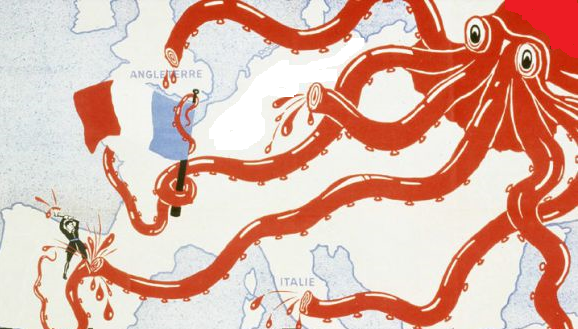
Moldova is one of the objects affected by Russia’s aggressive campaign. Back in the 1990s, before the Russian army occupied the Crimea and the part of Ukrainian Donbas, Moldova faced the occupation of the part of its territory, Transnistria.
The current hybrid influence of the Kremlin involves dissemination of propaganda through media of all types, penetration into the Moldovan economy and energy, as well as corruption and bribery of the Moldovan politicians. This is how actually the previous president of Moldova Igor Dodon was formed. He never kept from public his pro-Russian views. Moreover, in recent years there has been a lot of evidence revealing his dependent nature and big role of the Kremlin curators in his promotion. He even had ties with his formal opponent, once the most influential oligarch in Moldova Vlad Plahotniuc (i.e. this refers to the corruption scandal with the video showing Dodon receiving the package of money from the latter, after which the pro-Russian politician received the nickname “Kuliok” (the plastic bag)).
After Plahotniuc’s removal from the Moldovan politics, and due to political combinations it became possible to concentrate power in the hands of the politicians acceptable to the Kremlin. Moldova seemed to become captive to Moscow for a long time. However, a significant turnaround occurred with the election of Maia Sandu as the President, who supports the country’s pro-Western course. Despite the efforts of the Russians and sending a team of political technologists to support their own candidate, he lost without being re-elected for another term. This has led to changes in the leadership of the Putin’s administration in the CIS countries – Igor Maslov, who specializes in Moldova replaced Vladimir Chernov as the Foreign Intelligence General. As mentioned above, many Kremlin’s strategies fail because the executors are much more interested in finding the ways to benefit from corruption, and a significant part of the allocated funds do not reach the goals directly.
However, so far this is the only battle won in the process of Moldova’s struggle for the right direction and its possibility to undertake the democratic transformations which are so essential for development. It must not be forgotten that this is a parliamentary republic, where the powers of the president are limited. Despite the resignation of the Prime Minister Ion Chicu from the Socialist Party, which Dodon belongs to, the dissolution of parliament is possible only in case its work is blocked for three months or if the government cannot be approved. This has led to a protracted scenario with systematic nominations and failures of candidates for the post of prime minister, which eventually allowed Sandu to appeal to the Constitutional Court to call early elections.
If the set goals are achieved, then the pro-Western forces in Moldova have chance to completely reformat the political system in order to implement their own policy. According to opinion polls, the “Action and Solidarity” party, which until recently included Sandu, may even take a single majority in the parliament – this would be a kind of replicating the success of the President Zelenskyi in Ukraine in 2019.
The whole situation of the Russian forces’ failure in Moldova and the pro-European candidate’s coming to power creates grounds to restart relations between Kyiv and Chisinau. Sandu’s first visit as the president to Ukraine was significant, and it outlined her foreign policy guidelines.
The spectrum of Ukrainian-Moldovan relations includes several dimensions. First of all, it concerns the security issue in the region, given the deployment of Russian troops in Transnistria. The President of Moldova has declared very clearly the need of their withdrawal, which caused a wave of indignation which spread throughout the sources of Russian propaganda. The Ukrainian side has repeatedly stressed its readiness to allow transit through its own territory. The consolidated position of Chisinau and Kyiv on this issue would put the Kremlin in an awkward position and force it to respond. In addition, the Ukrainian foreign policy is focused on the enhanced cooperation in the region, offering in particular new formats. It may be sufficient to refer to the Lublin Triangle – a similar format can be used to intensify cooperation along the Ukraine-Moldova-Romania line.
The GUAM project (Georgia-Ukraine-Azerbaijan-Moldova) also needs to be “revived”. Despite some variation in the views on certain issues, the participants of this regional entity all faced the occupation of their own territories. Azerbaijan, which is a strategic partner of Ukraine, has recently set an example of how to regain its lands.
Another dimension where Kyiv could intensify its policy is the Ukrainian national minority in Moldova, which is quite large in number. Strengthening Ukrainian influence would displace the destructive dominance of Russia, which is actively working with this category of Moldovan citizens, and more broadly with its Russian-speaking population. Such a policy would contribute to stabilization and improvement of the internal situation within the Moldovan society, as well as rapprochement between Ukrainians and Moldovans at the social level.
It seems that there is a favorable climate for Kyiv and Chisinau to turn the page of bilateral relations and significantly increase cooperation, thus breaking one of the numerous Kremlin plans in the region.